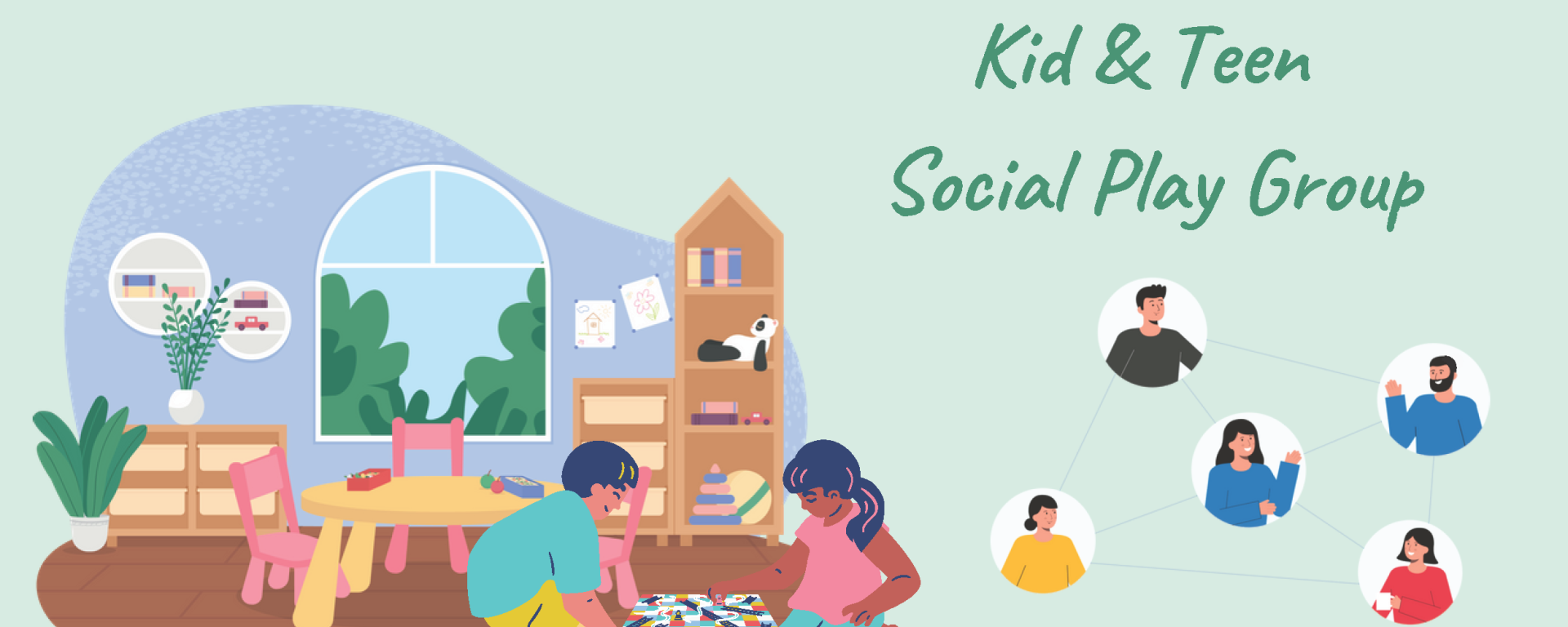Written by: Julia Lee, FCSN Voices Senior Youth Reporter
Graphics by: Barkha Trivedi, FCSN Voices Graphic Artist
Every day, many special needs children face new, uncomfortable, and unfamiliar situations. They need important life skills to handle the complex world of social interactions in various settings. How can they express and cope with their emotions when someone hurts or upsets them? How can they start and maintain a conversation when they want to talk, play, and make friends with others? The Kid & Teen Social Play Group program at FCSN is here to help them by teaching how to identify, express, and manage their feelings, communicate and solve problems with others, take different perspectives, and work as a team. The program also helps kids and teens learn appropriate social behaviors such as making requests, initiating conversations, sharing, and taking turns. Through engaging activities, the program stands as a guiding light for special needs students as it aims to benefit students in school, in life, and in the community.
The program started in January 2020 at FCSN’s East Bay Center, and it runs every season. It operates every Saturday: classes for kids (ages 6-11) from 1pm to 2pm, and classes for teens (ages 12-18) from 2pm to 3pm. The main people involved in the program are under the bannership of East Bay Enrichment Program headed by Director Kelly Ko, Coordinator Jennifer Chu, volunteers, parents of the Kid and Teen Social Play Group, and Instructor Ms. Lyn.
Ms. Lyn has 12 years of experience in training students from diverse disability categories, including those with severe emotional and behavioral disabilities. With an additional six years of expertise in ABA (Applied Behavior Analysis), she is also one of the teachers of FCSN’s After School Program for more than four years. Ms. Lyn expresses her passion and dedication for her work, and she is passionate about what she does.
Every class begins with a warm “Good afternoon” and addressing each other by name, setting a friendly tone. Ms. Lyn goes around the room holding the board with class rules, while students speak out the rules. After the greetings and the class rules, Ms. Lyn turns on the music player and fills the classroom with upbeat and catchy tunes. The students clap their hands and tap their feet, feeling the rhythm and the energy. Volunteers and students join in on a lively dance, moving their bodies and smiling. The song ends with a round of applause and laughter. Once the warmup ends, Ms. Lyn hands out cards to two students with written conversations. In one particular class, the conversations focused on expressing dissatisfaction when encountered with situations that can cause anger, like someone stepping on their feet. The students act out the dialogues, using different tones of voice and facial expressions to convey their feelings. This activity aims to help students learn how to share, cooperate, take turns, and express emotions. To encourage active participation, Ms. Lyn passes a dice around the room, ensuring that everyone gets a chance to speak and join in on the activity. In addition to the social play activity, students engage with other activities like board games covering topics such as morals, manners, emotions, friendship, and empathy. For some children, recognizing emotions, particularly anger, can be challenging. As such, the class practices relaxation techniques, such as deep breathing and stretching, to help students cope with feelings of anger and frustration effectively. These activities provide students with valuable insights into the foundations of healthy relationships.
After the duration of the program, Ms. Lyn notes that there were some behavioral improvements noticed from the kids/teens in her class. She shares some of the success stories of her students: “They were more conversant, built positive relationships, learned to share, and play. They learned how to deal with winning and losing, how to deal with anger and relaxation techniques, and how to apologize.” She adds that the skills they learned need to be retained by practicing and should be used in different settings.
The Kid & Teen Social Play Group, under the expert guidance of Ms. Lyn, emerges as a leading light for special needs children, providing them with the tools necessary to thrive in social settings. Her vision for the social play group is to help the students “develop a sense of self and positive social-emotional skills in their environment, [and to be] able to communicate, handle their emotions, have fun, show respect, and build friendship which can help them to do better in life, in school and in the community.” As these young individuals grow into teenagers and adults, the profound impact of this program will undoubtedly extend far beyond the classroom.

